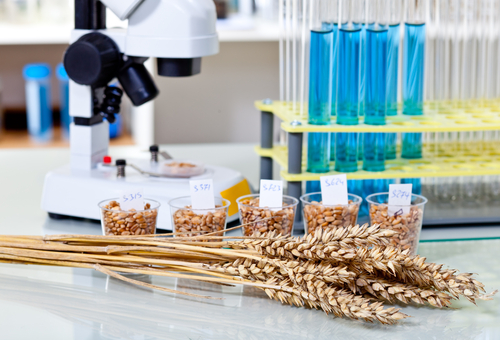COVID-19’s Global Impact on Food Testing
Given the evidence that the virus that causes COVID-19 originated in a wet market in Wuhan, China, where the virus first jumped from animal to human, the need for food safety measures has been highlighted globally. At the same time, food manufacturers and inspectors have had to contend with the operational hardships of social distancing and additional sanitary practices that have needed to be put in place for manufacturing facilities and transportation efforts. Recently, these concerns have greatly affected food testing globally, causing decreased workforces, evolving regulatory guidances, and increased government funding.
Due to shutdowns, social distancing, and permanent lab closures, there has been an overall decreased workforce for food testing as a result of the pandemic. Although this is likely to only be a temporary trend until the virus subsides, its impact is now causing shortages in trained testing personnel and staff. Slower food testing and reduced protocols are two of the effects from a shortage in labor. These shortages are likely to spike in correlation with shutdowns based on where the current COVID hotspots occur.
Additionally, the pandemic is causing regulatory guidance for food testing to adapt globally. This is varying by country, depending on governments’ interpretations of COVID-19’s ability to be transmitted by food and food packaging. For example, in the United States, food inspections have been scaled back in order to reduce the risk of inspection staff being infected by COVID-19. The US FDA has said that they’re are not doing the routine in-person surveillance of farms and facilities from foreign countries which export foods to the US. However critical inspections such as Class I outbreaks would be inspected per usual, according to the FDA.
Meanwhile, the European Commission, in coordination with EU states and governments, has called on its member states to reinforce their attentiveness and enforce their control protocols regarding online offers and advertising of food related to COVID-19. Specifically, they are asking to trace and identify websites and sellers with illegal marketing of food and supplements related to the disease.
The Canadian government announced the 2020 Leafy Green STEC Action Plan. The plan enables the Canadian federal government to use $20 million for food inspection during the COVID-19 pandemic. The funds are being used by the Canadian Food Inspection Agency (CFIA) for hiring, training, equipping food inspection staff so that food inspections can continue unaltered by the pandemic. Additionally, the Canadian government is funding the development of new protocols and coordination for safely reopening meat processing plants where staff had been infected by COVID-19.
As more data is obtained regarding COVID-19 and food safety, food testing practices and guidances are likely to continue changing and evolving across different countries. Ultimately, proactive approaches will be increasingly implemented due not only to the impact of COVID-19, but also to be in a better position to deal with other potential future viral outbreaks. The Market Opportunity Report: Food & Beverage Labs 2020 from SDI covers these trends and more including market data, insights, and forecasts for food testing analytical technologies.




